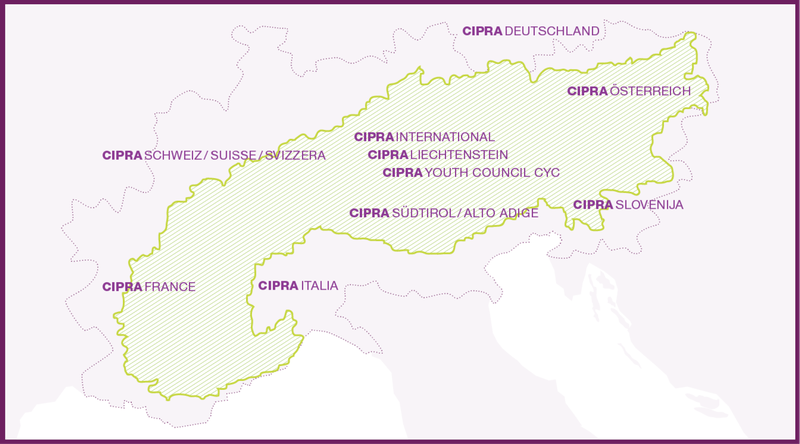Laura Haberfellner, CIPRA International Lab
Innovation to counter emigration
Emigration and the brain drain in the Alpine region: a new EU project involving CIPRA aims to counteract this trend. It is testing innovative governance models to strengthen mountain regions and create a win-win situation for regions of origin, destinations and young emigrants.
Who is CIPRA?
Find out more!
More articles
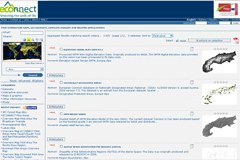
CIPRA Internationale Alpenschutzkommission | Schaan, LI
Maps and data on ECONNECT available online
The "GeoPortal" which is the central project repository for all spatial data and map products of ECONNECT is now online on http://gis.eurac.edu. Furthermore, the working group "Implementation strategy and data needs" has met to discuss the data situation at the current stage of the project.
CIPRA Internationale Alpenschutzkommission | Schaan, LI
Sharing connectivity knowledge within and beyond the Alps and visualising corridors and fragmentation
100 persons from eight European countries followed the invitation to the workshop in Grenoble, France, in November and used this opportunity for active knowledge transfer on ecological networks. The workshop discussions have helped the ECONNECT partners to agree on the appropriate methods which they are now using for modelling habitats and corridors for the whole Alps and for visualizing barriers.
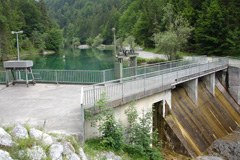
CIPRA Internationale Alpenschutzkommission | Schaan, LI
Alpine riverine landscapes: connectivity, barriers and fragmentation
How strongly is a river landscape fragmented? What are the most important barriers and obstacles in Alpine rivers? These questions are in the focus of the Institute of Ecology from University of Innsbruck within its ECONNECT activities. The results will be visualized with the help of GIS and contacts to regional watershed authorities established for the reduction of barrier impacts and restoration.

CIPRA Internationale Alpenschutzkommission | Schaan, LI
Ecological Connectivity and the Law: from barriers to instruments
Entering the second year of the ECONNECT project, the activities on legal barriers (Work Package 6) are steadily progressing. The two major fields of action are at the moment a comparative analysis of the legal frameworks of ecological connectivity in the Alps and the analysis of the legal situation in the pilot regions.
Events
|
Webinar - Successfully organising sustainable procurement with proCURE | online | |
|
FutureForum Alps 2025 | SAL - Saal am Lindaplatz, Landstrasse 19, 9494 Schaan, Liechtenstein |
Projects

CIPRA International Lab
AlpsLife – observe globally, act locally
The successful protection of biodiversity in the Alps is only sustainable through Alpine-wide monitoring and management. This is the aim of the AlpsLife project.
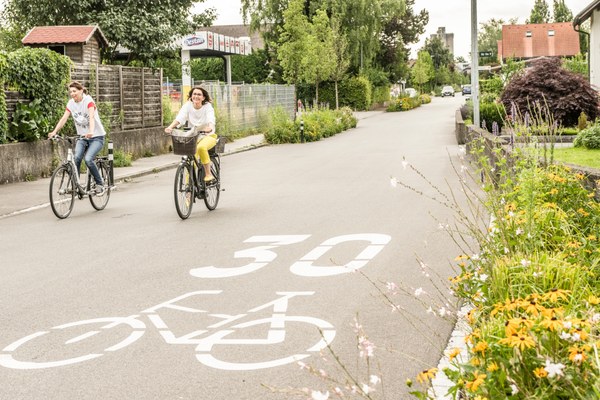
CIPRA International
Climate-friendly streetscapes
Whether travelling by car, public transport, bicycle or on foot, roads and their immediate surroundings are probably the most important part of our daily journeys. Against the backdrop of the climate crisis, they can become a problem because they increase the heat island effect and seal the ground. The project, based in the Alpine Rhine Valley, aims to make road spaces fair, climate-friendly and health-promoting.
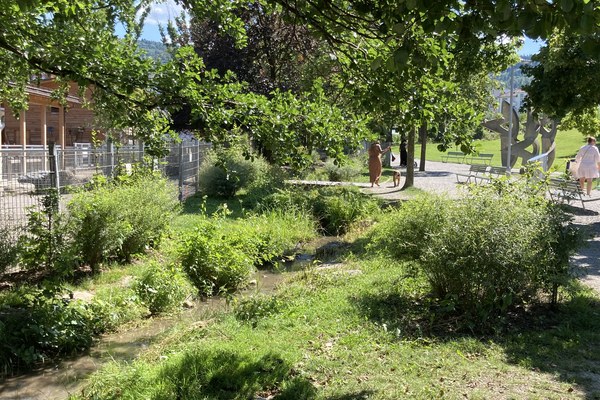
CIPRA International
Nature-based solutions and their governance structures in the Alpine region
In view of the global challenges of climate change and biodiversity loss, the use of nature-based solutions (NbS) is becoming increasingly important. On behalf of the German Federal Environment Agency, ifuplan (lead) and CIPRA International are preparing a report on “Nature-based solutions and governance structures in the Alpine region”. The aim of the report is to analyse the potential of various NbS in the Alpine region and the governance mechanisms behind them that ensure their success. Based on this, their transferability to other Alpine regions will be analysed and recommendations for action formulated.

